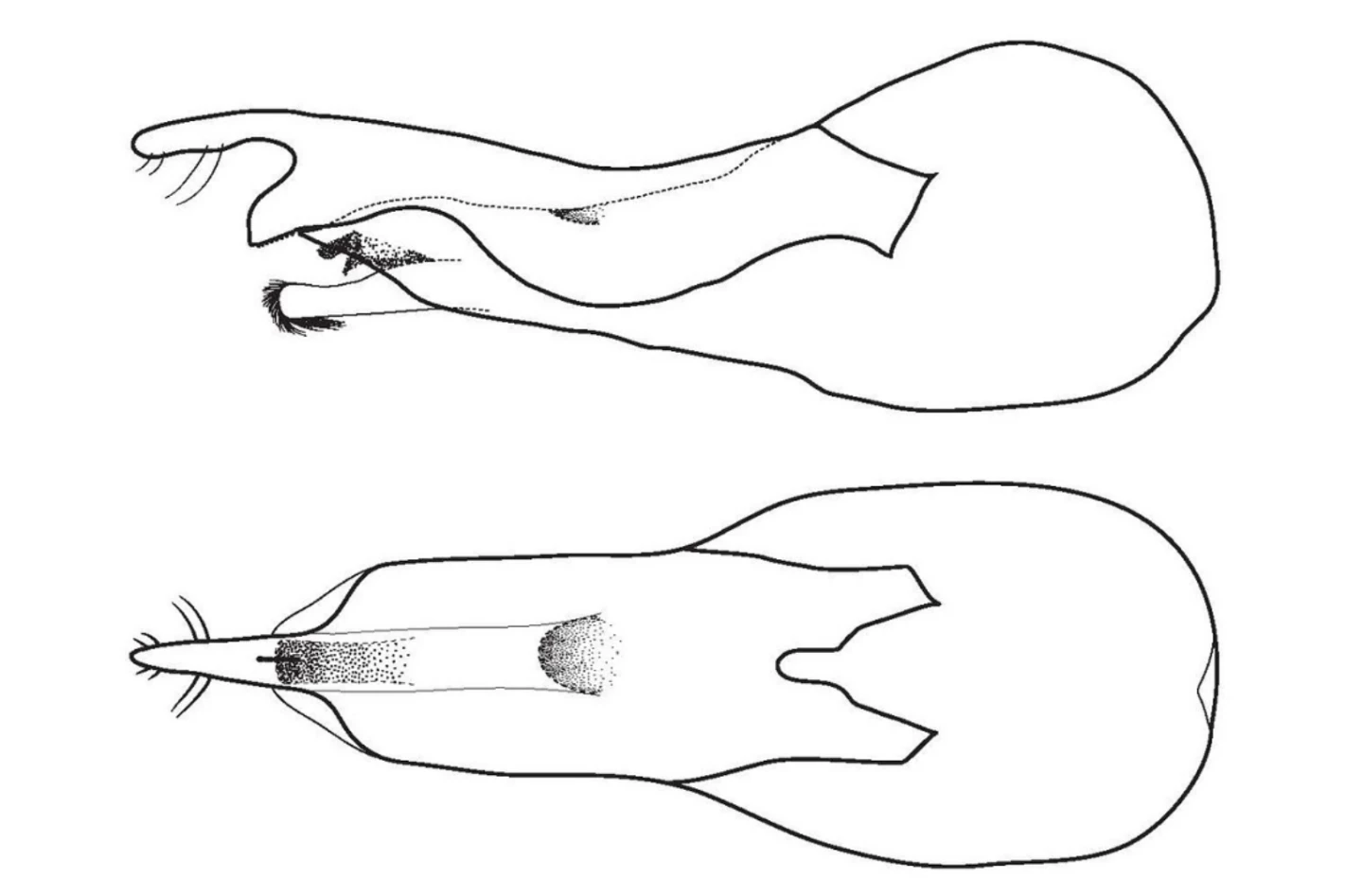Step aside, ducks, with your corkscrew phalluses: we have a new member of the animal kingdom sporting a penis that resembles a tool you’d more likely expect to see behind a bar than in a biological body plan.
Among six newly discovered and named species from the rove beetle genus Loncovilius, this admittedly fairly dull-looking brown insect may not look that remarkable at first sight, but it soon stood out to the University of Copenhagen researchers.
Upon closer inspection – after all, this beetle is around 1 cm (0.4 in) long – the researchers saw that this particular Longcovilius male specimen from the Natural History Museum of Denmark was sporting a uniquely shaped penis that uncannily resembled a bottle opener.
Fittingly, the team thought it was only fair to bestow upon this oddly endowed bug a name that pays tribute to Denmark’s beer behemoth, Carlsberg – Loncovilius carlsbergi.

"This species is characterized, among other things, by the fact that the male's sexual organ is shaped remarkably like a bottle opener,” said Aslak Kappel Hansen, from the Natural History Museum of Denmark. “Therefore, we thought it is obvious to dedicate this species to the Carlsberg Foundation, which has generously supported independent research for many years.”
And yes, there are several kinds of bottle openers, but L. carlsbergi sports genitalia that resembles the long, flat type often sported on keyrings, with a protruding top that fits over a cap and a shorter corresponding bottom that juts out far enough to hold the bottle’s neck.
Sadly, the researchers have no definitive explanation for just why this flower-residing beetle developed such a penis, but evolution tells us that it has everything to do with achieving efficient mating success with its female counterparts.
"Genitalia are the organs in insects that evolve to be different in every species,” said Hansen. “As such, they are often the best way to identify a species. That's why entomologists like us are always quick to examine insect genitalia when describing a species. The unique shape of each species' genitals ensures that it can only reproduce with the same species.”
These beetles are only found in Chile and Argentina, and scientists are desperate to discover all the unknown species before they’re wiped off the face of the planet, never to have been identified and recorded as existing. It’s estimated up to 150 species become extinct every day, a vast majority of those forever unidentified.
"It is estimated that as many as 85% of all species on Earth are still not formally named and described, said Josh Jenkins Shaw. “Many species go extinct without ever having been named or recognized by science and as a consequence by humanity as a whole. A taxonomic name is important because nature conservation relies on knowledge about species in particular areas. Without such a description, species are often left out of conservation efforts.”
Now the scientists hope to raise awareness by encouraging people to raise a glass. They’ve created a prototype of a stainless-steel bottle opener inspired by, of course, L. carlsbergi. It’s hoped this tribute tool will go into production and be available for purchase.

"It's important that we recognize the vast wealth of yet to be researched species around us before it's too late,” said Hansen. “We would like for people around the world to talk about the crisis facing our planet's species. A move towards serious learning and awareness may be sparkled by a light chat that takes place over a beer.”
We'll cheers to that.
The research was published in the journal Zoological Journal of the Linnean Society.
Source: University of Copenhagen







